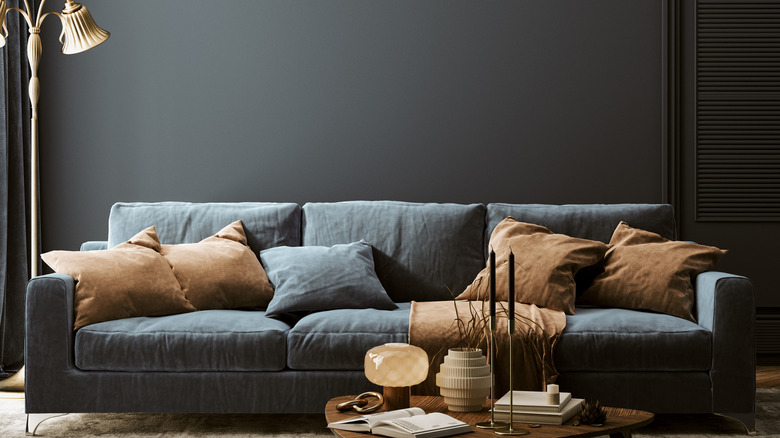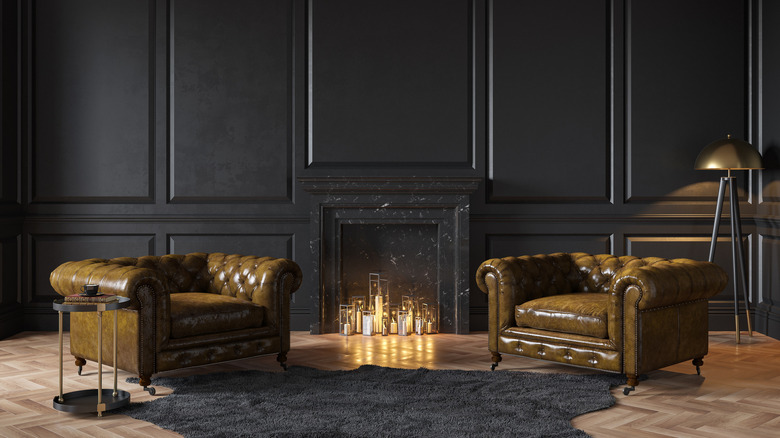Should You Paint Your Room With Dark Colors?
Paint is beloved by interior designers for being an easy, budget-friendly way to update a space. Even better, it's one of the home projects that just about anyone can confidently DIY — all you need is a few tools like a paint roller, paint tray, and perhaps some painter's tape.
When you're trying to decide what color to paint a space, though, it can be a bit challenging — there are so many options that it can be hard to land on just one. Many people shy away from darker colors, particularly if they're looking to paint a smaller space, as they're worried it'll make their room feel like a cave. As with any home design decision, there are pros and cons to using dark paint — it's ultimately a matter of what you want the space to feel like.
As Melanie Lissack Interiors explained, those with a creative flair may want to consider darker hues, as it can really make art and other objects on the wall stand out. Darker shades also tend to look great in pictures, and they can make certain vibrant shades, such as yellow, stand out. So, if you have a few beloved bright furniture pieces, a darker backdrop can help them really shine.
For households with small children or pets, it can also be a great low-maintenance option, as per MasterCraft Painting & Finishes, because dirt, fingerprints, and other debris won't be as noticeable as they would be on a pale backdrop.
A few cons to consider
There are a handful of challenges you may want to consider before splashing that dark paint on your walls. The first is the general location and function of the room — as Melanie Lissack Interiors details, darker paint can reduce the light in a room, which may not be optimal in a space with barely any windows, or may require you to introduce a few other lighting sources such as lamps throughout the space.
You'll also need to spend more time painting — according to Country Living; you'll likely need to do a few coats to ensure full coverage and that saturated hue you desire. It may also require some maintenance — while smudges and fingerprints are more easily concealed, other imperfections such as chips in the paint become much more obvious with a dark hue, so you might have to touch up your paint job from time to time.
The last con to consider, also related to the effort you'll need to expel, is that if you ever change your mind, you will have to work a bit harder to cover it up. Before you splash on your new color, you'll need a few coats of white paint or primer to really conceal that dark hue beneath.
Ultimately, though, if you're dreaming of a dramatic space with black paint, don't discount your desires off the bat and feel like you have to pick a lighter shade — there are plenty of positives to selecting a darker hue.

